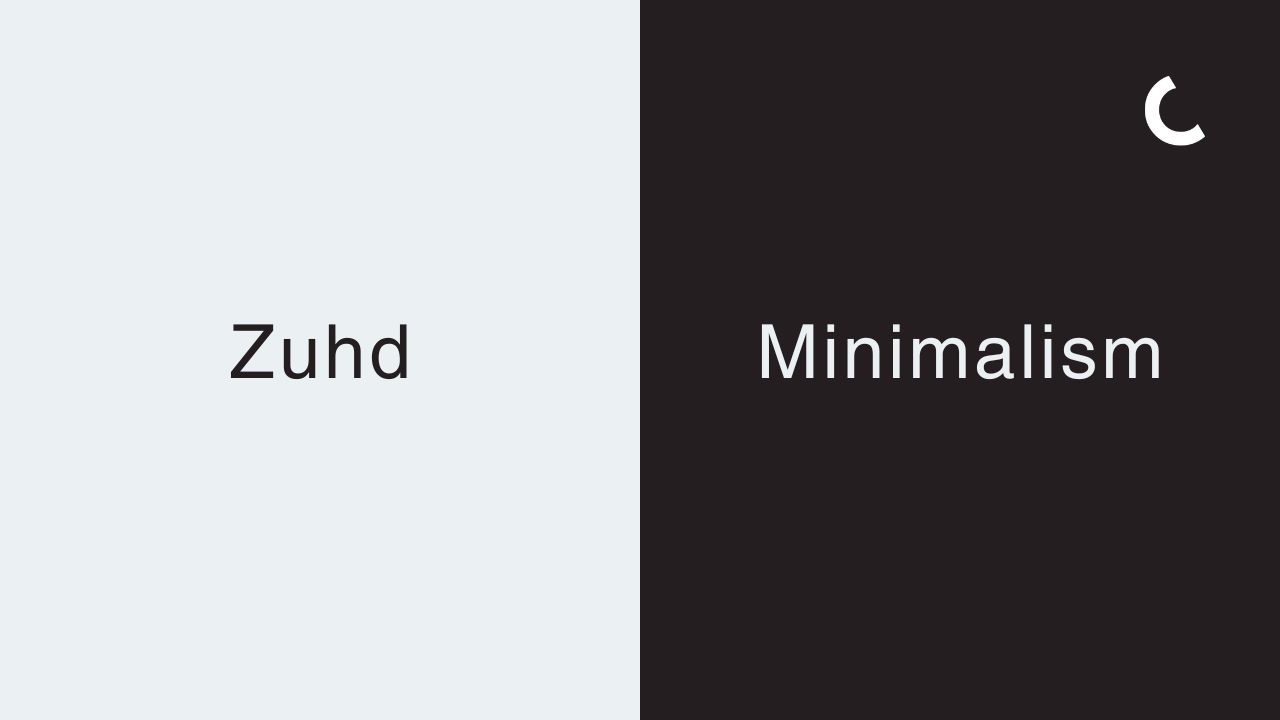Minimalism and Zuhd are two concepts that have many similarities despite being rooted in different cultures. Minimalism is a modern concept that has gained popularity in recent years, while Zuhd is an Islamic concept that dates back to the time of Prophet Muhammad (PBUH) and has been an essential part of Islamic teachings ever since.
“Zuhd is to free the heart from wanting.”Al Junayd
Minimalism is the practice of living with less and simplifying one’s life. It involves getting rid of excess possessions, decluttering one’s living space, and focusing on what is essential. The goal of Minimalism is to reduce distractions and achieve a sense of freedom, clarity, and contentment. Zuhd, on the other hand, is the Islamic concept of detachment from the material world and a preference for a simple and ascetic lifestyle. It involves being content with what one has, avoiding excessive luxury and extravagance, and focusing on spiritual pursuits.
“Zuhd means shunning that which is haram and that which Allah hates; avoiding shows of luxury and overindulging in worldly pleasures; focusing on doing acts of worship; and making the best preparation for the Hereafter. The best explanation of that is the life of the Prophet (peace and blessings of Allah be upon him).”Sheikh Muhammad Saalih Al-Munajjid
One of the primary similarities between Minimalism and Zuhd is their emphasis on simplicity and detachment. Both concepts promote the idea that material possessions and worldly desires can distract us from what is truly important. They encourage us to let go of our attachment to material possessions and focus on what really matters. In Minimalism, this means reducing the number of possessions we own and avoiding the accumulation of unnecessary things. In Zuhd, it means avoiding excessive luxury and focusing on spiritual pursuits.
Another similarity between Minimalism and Zuhd is their emphasis on mindfulness and intentionality. Minimalism encourages us to be mindful of the things we own and the choices we make, while Zuhd encourages us to be mindful of our actions and intentions. Both concepts promote the idea that living intentionally and mindfully can lead to a more fulfilling life. In Minimalism, this means being intentional about the things we own and the things we do, while in Zuhd, it means being intentional about our spiritual pursuits and our relationship with Allah.
Both Minimalism and Zuhd also promote the idea of contentment and gratitude. Minimalism encourages us to be grateful for what we have and to focus on the things that bring us joy and fulfilment, while Zuhd encourages us to be content with what we have and to avoid the desire for more. Both concepts recognise that true happiness and contentment come from within and cannot be found in material possessions or worldly desires.
“Abstinence in this life means working with the assumption that you will not live long. It is not about eating coarse food or wearing poor clothes.”Sufyan al Thawri
Finally, both Minimalism and Zuhd emphasise the importance of community and social responsibility. Minimalism encourages us to be mindful of our impact on the environment and to seek ways to live more sustainably. Zuhd encourages us to be mindful of our responsibilities to others and to seek ways to help those in need. Both concepts recognise that we are part of a larger community and that our actions can have a significant impact on others.
Overall, the Quran and Hadiths emphasise the importance of living a simple and mindful life focused on the remembrance of Allah and the Hereafter. They highlight the temporary nature of this world and remind us that true richness and contentment come from within, rather than from material possessions. These teachings align with the principles of Minimalism and emphasise the importance of simplicity, detachment, and contentment.










































